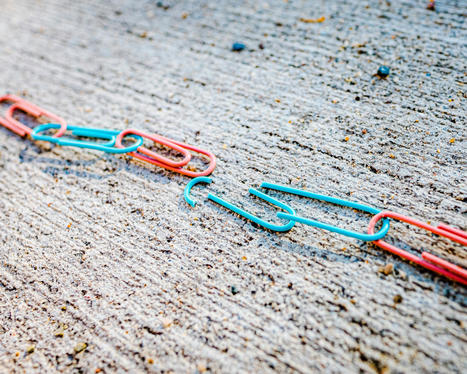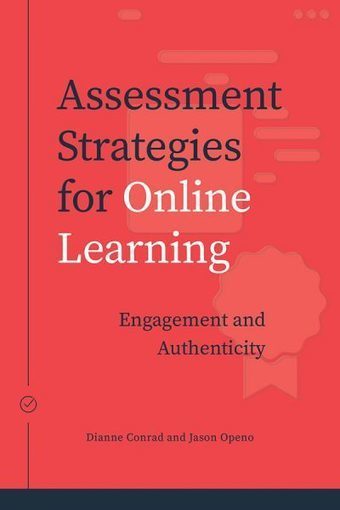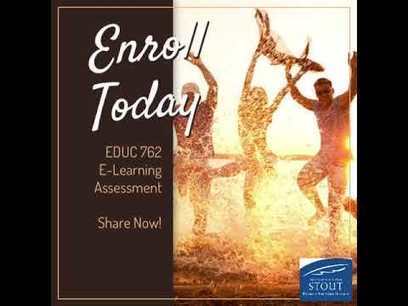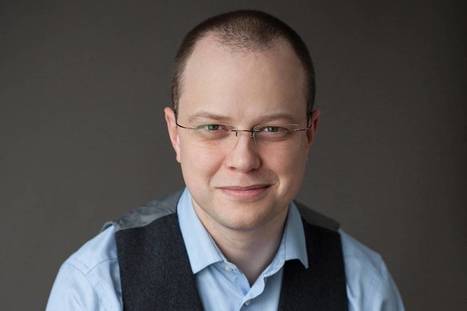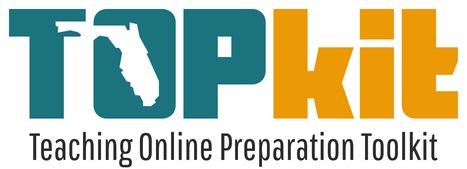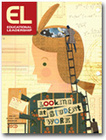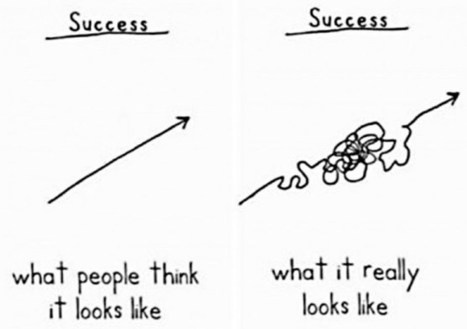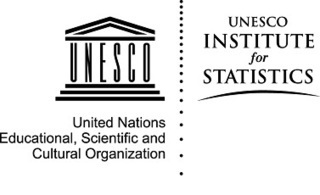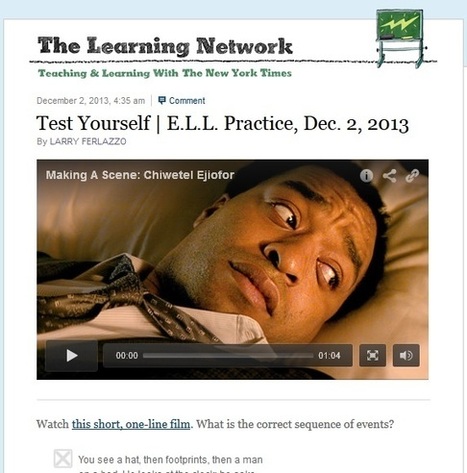Get Started for FREE
Sign up with Facebook Sign up with X
I don't have a Facebook or a X account

 Your new post is loading... Your new post is loading...
 Your new post is loading... Your new post is loading...
Sign up to comment

Yoho Marketing's curator insight,
February 10, 2019 2:35 AM
Mindset is the key to developing success. #IinkBuilding #SEO #LinkBuildingAgency #LinkBuilders #WhiteHatLinkBuilding #ManualLinkBuilding

Patricia laronze's curator insight,
October 25, 2017 10:49 AM
" Changing the way you assess student learning can dramatically improve your teaching effectiveness, as it provides immediate feedback on what works and what doesn’t."

elearning at eCampus ULg's curator insight,
April 21, 2016 6:17 AM
To put on every teacher's wall :-)

Mohamed Moosa's curator insight,
May 3, 2016 2:45 AM
PURIFICATION OF THE SOUL A`ūthu billāhi min ash-shaytānir rajeem. Bismillāhir Rahmānir Raheem. [Surat Al-Qasas ; 76-78] Introduction PURIFICATION OF THE SOUL A`ūthu billāhi min ash-shaytānir rajeem. Bismillāhir Rahmānir Raheem. [Surat Al-Qasas ; 76-78] Introduction We commence by praising Allāh , sending blessings and salutations upon Muhammad . We ask the Almighty to bless him and his entire household; those who supported him from day one. And we ask Allāh to bless all his companions as well as every single one of us and our offspring to come up to the day of qiyāmah. Not forgetting those who have struggled and strove through the years, in order to preserve this deen in a way that today it has come to us. May Allāh use us to do the same for the future generations? Beloved brothers and sisters in Islam, this evening we will be talking about the purification of the soul. The believer as you know is only successful if he develops his link with his maker and cleanses his heart. We refer to the heart, we refer to the soul. Allah speaks about cleansing oneself from the sins that are apparent as well as those that are hidden. So in the Qur’an he says, “Watharoo thāhira alithmi wabātinah” [Surah Al An'am chapter 6: 120] “Leave and abandon all sins whether they are outward or inward.” And I'm sure we all know that the outward sins are quite clear for everyone to see. Those which are inside are sometimes completely invisible to the rest. It is only through interaction that some of them can be picked up and sometimes even with interaction some of these sins cannot be picked up. So it is up to us to purify not only the soul but the heart, knowing that some of the scholars refer to the heart and the soul using the same term and some have separated the two. If the heart is pure and good, the whole body will be pure and good What we do need to understand is that the heart is described in the hadith of halāl and harām which appears in Sahīh Muslim, narrated by an-Nu'man ibn Bashir “Halāl is quite clear and harām is also quite clear”. And between the two there may be a grey area where people may not know is this halāl or is this harām.” So the hadeeth continues to say “Whoever stays away from that which is doubtful has protected himself and his religion and whoever falls into that which is doubtful has fallen into harām.” If I can stop there for a moment and quickly explain. If a person were to be told that this particular piece of food that you're about to eat is poisonous and as soon as you put it in your mouth you will die. And twenty people are saying that to him and another twenty say “No don't worry its fine, its okay, we've checked it out and so on and you can eat it.” That is a very clear example of what we are saying today, meaning in this hadeeth. If you were to put it in your mouth, it's as though you've committed suicide. You're gone. You've killed yourself, because twenty are saying this and twenty are saying that. And if you were to leave it, you would save yourself completely. So there is no risk involved by leaving it and yet by taking it you are definitely risking your life. This is as far as a food stuff goes which may be poisonous. But when it comes to the deen and what Allāh has revealed and sent down, there are things that are clear, things that are not clear for some and the clarity is either this way or that way. You know this is permissible and this is not permissible. That is clear. But sometimes there is a debated issue in the center. If you are to protect yourself from it, perhaps you will be able to safeguard your deen. And in this particular narration some may say that this is speaking more about food stuff and so on, but the wording of Rasoolullāh goes far beyond anything that can be termed halāl or harām is included in this particular narration. Then the hadith continues to say “Similar to a shepherd who has allowed his flock to graze upon the border of his land not knowing whether it has gone onto the land of the neighbor because the demarcation is not so clear.” So there is a point up to which he knows this is my land. Beyond that he is not so clear. Is this my land or is it not my land? So when he goes to that grey area, he doesn't know whether it's his or not. What a big risk. He is now grazing his sheep, as a shepherd, on land that may not be his. And this is why the narration continues to say “Behold every king has limits. Limits beyond which you are not allowed or you will not be allowed to cross. Every king has rules, regulations and indeed the limits of Allāh are those things he has made prohibited.” Don't go there! Subhān Allāh. Then it continues making mention of the heart and this is what we are trying to get to “Behold in the body there is a piece of flesh. If it is pure and clean and good, the entire body will be pure and clean and good. And if it is dirty, impure and not good, then the whole body will be dirty, impure and not good. Behold, that organ or that piece of flesh is the heart.” Subhān Allāh. So if your heart is clean, everything else will be okay. If your heart is dirty, everything else will be dirty. Accepting advice from others And when we say clean heart, it doesn't necessarily mean that you are just a person who's non-judgmental. You see sometimes they say “Don't judge me” when you're giving them advice. You say “Brother you're not supposed to be go to the nightclub”, “Hey stop judging me”, “What are you talking about, we're just advising you.” So don't use the term “Do not judge me” in order to run away from advice. Sometimes it becomes difficult for the scholars or for those who want to advise others. “Sister your hair is supposed to be covered, sister you're supposed to be dressing in a proper way”, “My brother you're not supposed to be bouncing around on the street with your backside half showing”. Allāhu Akbar. “Stop judging me”, “Well your backside's judging you!” Allāhu Akbar. And this happens and we get these answers on a daily basis. Well to be honest nobody's judging. But it does not mean that if a person has uttered these type of words that their heart is dirty. No brother, sister! They are advising you for your better. Wallāhi moments ago I was listening to a clip in the Urdu language of one of the cricketers in Pakistan. I don't even know exactly who he is but I believe he is one of the top cricketers of the globe. And he was making mention of who his real friends are. You know what he said? He said “The real friends are the `ulamā'. My real friends are those scholars who keep reminding me what is my duty to Allāh, what is halāl and harām and the fact that I am going to go into my grave with nobody, no cricket bat and no ball and no score and nothing from the Guinness Book of Records, but just me and my own records; the deeds I've done.” Imagine a cricketer, a man who's one of the top on the globe confirming that those scholars who continue reminding me, telling me that I am a person who's going to go into my grave all alone. Those are my true friends. Subhān Allāh. What about us? What do we have next to our names? Do we hate the people who remind us? If that's the case, purification of the heart and soul is required. We ask Allāh to help us purify. Wallāhi it is a difficult age that we are moving in because people do not realize that when others are reminding you to purify your soul, your heart, they are not judging you. They are helping you. They are giving you a word of encouragement. Don't just give that answer. That is an answer that sometimes the globe gives in order to get away with murder, to keep on committing sin. “We will not judge you, we love you my sister but we don't love your bad habit. We love you my brother, we don't love your bad habit.” I was about to say we don't love your backside. Allāhu Akbar. Wallāhi it's true. Thinking of people, wallāhi my brother we love you. We really want you, that's why we are telling you don't do that. We had an image doing its rounds on the internet, with some of the scholars had to say “Please don't, you know, send this around.” Because they were showing jumu`ah. I think it was two weeks ago in a masjid. Okay let's not say where it was in case you might recognize the brother, but they were showing him making his Sunnah as the khutbah is going on. And the people behind him was so harmed and hurt, they had to get up and some of them you know sharp enough to pick up their phones and say lets you know, tell the people what's happening around here. May Allāh safeguard us? We should not be exposing people but the people should not be exposing themselves. Allāhu Akbar. Cleansing the heart of hatred So my brothers and sisters, lets purify our souls for the pleasure of Allāh . How does this happen? We need to do something about it. Don't think that I just make a du`ā' “Ya Allāh clean me, purify my soul” and it will. Du`ā' is a part of it, definitely. “Allāhumma yā muqallibal quloob, thabbit qulubee `alā deenik.” The Prophet used to say “O Allāh in whose hands” or “O Allāh who is the owner of the movement of the hearts, move my heart towards the deen – on the deen. Keep it steadfast.” But that statement will be of no use if you do not have an intention to purify yourself. Work hard on matters like hatred. Remove that hatred for your fellow brothers in the deen and have hatred for sin rather than the individual whom you are supposed to be looking at saying “This is my brother in Islām.” If you are supposed to be hating people because of a sin they may be committing, remember everybody will hate everybody because none of us can put up our hands and say “We are sinless.” Can anyone now, here, put up their hands and say “I'm spotless, sinless, I have not sinned?” Not one! Subhān Allāh. Not one! Not even myself because we are human beings. So the reality, we will hate the sin, we will hate the shirk, we will hate the bid`ah, but we will work on the brother or the sister in a way that we will try to help them come out of that shirk, come out of that bid`ah, come out of that sin for example. But at the same time remembering that this is a person who has declared the shahādah and I have as well. They may have sinned differently to me, but in the same way I want to be helped, I need them to be helped and I will try my best to do that or at least make du`ā' for them. Making du`ā' and giving naseeha This is why we say, you see a brother with a bottle in his hand. A bad Muslim would go around Tweeting that and go around Facebook-ing it and WhatsApp-ing it and so on-ing it. Subhān Allāh. Why? Because they want the world to know “I saw that man with a bottle.” But a good Muslim will do one of two things or both. They will either go to the brother, say “Brother you know what this is something bad and you know you're a Muslim, come on you know insha'Allāh there's much goodness expected from you by the will of Allāh. You're such a great person, you have so much potential, and this thing is not going to do you any good.” Engage them. Not swearing. Engage them properly to say look this is something that is unacceptable in the deen. You know, it will cause a lot of damage, a lot of harm. If you quit this I think there are a lot of good habits that you have. Just quit this and so on and Allāh may open the brother's doors through your effort and you will be granted goodness. “For Allāh to use you to guide a single person is better for you than anything of the highest material value in this world.” May Allāh bless us all? That is point number one. You either go to him or someone who has an effect or impact on him or perhaps tell them to talk to him if you cannot talk to him. And secondly make du`ā' for that brother. “Ya Allāh, today I witnessed someone with a bottle. It hurt me, Ya Allah. Ya Allah, guide them, help them to remove the bottle. Help them to give up that bad habit and help me to give up whatever bad habits I have.” Allāhu Akbar. This is purity of the heart now. With that du`ā' and that naseeha, if Allah wills that person's heart will come onto the right path within a matter of time. We know so many people who had very bad pasts, but now when they've come up straight, subhān Allāh, they've gone very far in life in terms of the deen and become closer to Allāh . So many of us, perhaps we are much better today than we were yesterday. May Allāh grant us goodness? Remaining patient when giving naseeha This is why we say, brother when you have become religious, remember when you are inviting others towards religion, you also came about slowly. So give them a little bit of time. The problem with us, we come on the deen after fifty years and everyone else we give those five minutes. Wallāhi, it's a problem in the ummah. We are facing it, we are not patient. We are supposed to be patient as Muslimeen. It took you forty years to recognize your Maker. Why do you want to in four minutes create such a situation that remove a man from the whole fold of the deen. Kick him out, curse him to the degree that you've buried him alive and you haven't given him more than four minutes to repent. You took forty years my brother. Thank Allāh he showed you the light. Allāhu Akbar. Work on them, continue working on them. The Prophet's nubūwwah was not twenty-three minutes, nor was it twenty-three days, nor was it twenty-three months. It was twenty-three solid years. Allāhu Akbar. So purify your heart when it comes to your relation with others because there is something known has huqooqul`ibād through which a lot of what your heart conceals becomes manifest. We hate for the sake of Allāh the deeds that are done in the displeasure of Allāh. We may hate for the sake of Allāh those who have absolutely no goodness in them and they have damaged the deen or they have caused lots of damage to those who follow the deen. Giving da`wah – Every non-Muslim is a potential Muslim But remember even the non-Muslims, every single non-Muslim is a potential Muslim. If you lose focus on that, you have lost the path. For as long as they are breathing there is hope. Who is ready to invite them in the proper way? Allāhu Akbar. A very big statement that brings tears to the eyes. Every non-Muslim. When the Prophet made a du`ā' for the enemies of Islām, one of the prayers were “Allāhummah a`izzal Islāma biahadil `Umarain” “O Allāh, grant strength to this deen through the acceptance of Islām of one of the two `Umars.” One was known as `Umar ibn al-Khattāb later to be known as, and the other one `Amr ibn Hishām who was known as Abu Jahl. No sooner was the du`ā' made, response came from Allāh . This man came marching into this house of al-Arqam ibn Abi'l Arqam as the books of history have made mention. So Rasoolullāh knew that Allāh is the One who guides. Just like he guided me, he may guide you or anyone on the street. So remember, when we say cleanse your heart and do not be judgmental we need to understand what this statement means. May Allāh make us people who realize that we would like to help one another to become steadfast on the deen. And that help can happen in so many different ways, depending on the authority that Allāh has given you as well. Cleansing the heart of envy If we have hatred in our hearts. Now let’s talk about general hatred, not necessarily whilst giving da`wah. But at the same time hatred in our hearts for someone, for some reason, normally it stems from jealousy. Not every time but a lot of the times. Because Allāh has blessed someone with more wealth, with more knowledge, with more acceptance, perhaps with greater looks. You know you have a woman who's extremely beautiful or a girl who's extremely good-looking and sometimes you have other girls who make her life so difficult and her crime is just that she is gorgeous. I would have told you to say mā shā'Allāh, but it's abstract. There's no one in particular we're talking about. Allāhu Akbar. So al-hamdulillāh, all you can say is “In sha'Allāh.” Allāhu Akbar. My brothers and sisters, wallāhi, do not become jealous of the favors that Allāh has bestowed others, just because you don't have it. Don't! It will result in the dirty heart. The heart will become unclean, filthy and it will require cleansing. Cleansing the heart with Thikrullāh Cleansing of the heart is also done through what is known as thikrullāh because everything has a detergent and the detergent of the heart is the remembrance of Allāh. But I'd like to interpret the term thikrullāh in its broader context. Thikrullāh starts with understanding the meaning of the Qur'ān. That's where it starts. That's the beginning of it. Because the thikr that is mentioned in the Qur'ān so many times, it directly refers to the Qur'ān and at times it refers to the Sunnah of Muhammad . So remember you need to know the message of Allāh, in order to have your heart purified. What did Allāh say to me? I always, always say it is a big insult. Some of us, how old we are, how regular we are with our salāh, yet we have not made an effort to understand the meanings of what we utter in salāh. Wallāhi it is an insult. We don't even know what is meant by “Alhamdu lillāhi rabbi al`ālameen, Arrahmāni arraheem, Māliki yawmi addeen” [Surah Fathiha ; 2-4] Some people do not know the meaning and some people do not think of the meaning when they are uttering these words. So what value do you have? How is your heart going to be impacted? Look at the hearts of those who were the sahābah . When they heard a single verse their lives changed. When they heard one verse, their hearts were purified! `Umar ibn al-Khattāb himself, who was an enemy of Islam, the opening verses of Surah Tāhā were read to him. Not more than a few lines were read to him. He began to tremble. Immediately his heart was cleansed because he had that sincerity in his heart. For a moment it was struck with sincerity and he said “Take me to Muhammad .” Guided from kufr to īmān in a split moment because of the Qur'ān. And this has happened to so many people. It has happened to people around us in our midst, perhaps some who might be seated here. Reverted immediately. Allāhu Akbar. Why? They read the Qur'ān and realized, this is the word of Allāh. I always tell people, you know I have an MP3 disc in my vehicle, given to me by someone in Malaysia. A brother. Allāh grant him goodness. And on it, there is the entire Qur'ān just in the English language. So the `Arabic has been, you know separated. Now we know the importance of the `Arabic and the English and he says “This is extremely beneficial to those who speak the language.” And I thought to myself, look, to me the `Arabic is powerful, the English is fair enough trying to explain what the `Arabic is, but the word of Allāh is that particular `Arabic. You cannot compromise it. So I thought to myself let me put it in and try and listen to what is being said. And I had a non-Muslim sit in my car once. One who had come to do some work and I was taking him back to his place. I saw tears in his eyes. Four of five surahs were read within a short space of time in the English language alone and he told me “What is this?” And I said “What do you think it is?” He said “It's something powerful!” He said “It has to be the book you guys follow” I said “It is” “Can I come to your place of worship?” “By all means brother?” Subhān Allāh. I think within a short space of time, may Allāh grant him guidance to the deen. Ameen. That's when I realized, I said you know what? Sometimes when people are just going through even the meaning of it, because they understand it, it impacts differently. Without reducing the importance of the tilāwah in the `Arabic language. Because indeed that is on a level of its own. But at the same time remember the impact of that, if you understand what you're reading, is totally different. You need that as well. So your purification will start when you have made an intention to understand the word of Allāh. I said moments ago, they heard four verses of the Qur'ān, they embraced Islām. We have read what we know as khatmah upon khatmah upon khatmah once a month, sometimes once a week, sometimes once every two months. We've completed the entire mushaf, but brother you cannot give up your pornography. A`oothu billāh. Abstaining from Pornography It did not move you. Pornography is the problem of the age, wallāhi. It's a difficulty. It affects your eyes, your brain, your mind, your organs, your reproductive system, the way you look at the opposite sex, your marriage. Absolutely everything is made rotten through a cancer because of your eyes perceiving some dirty sexual movements of the opposite sex. Totally harām, completely unacceptable but available on your phone. Today I was speaking to some brothers on our journey back from Birmingham and I made mention of a very interesting point. Your mobile phone that you have my brothers, my sisters can take you to jannah or jahannam. Remember that. The way you use it. You have any scholar on the globe that Allāh has used to affect you and impact you at your fingertips. At the time of your convenience, in your bedroom, Subhān Allāh. Perhaps, whilst you're lying down, you can click every night either on a scholar where you can listen to something regarding your deen and go to bed feeling a good Muslim. Or you can click onto a pornographic site and perhaps you will be caught in that web which will take you very, very, far away. It's to do with how clean or dirty your heart is. If you want to purify yourself, you need to force yourself, before you go to bed. Click that phone, listen to a ten minute clip of a scholar of your choice, subhān Allāh, and then go to bed. Every day that ten minute dose will wake you up but if you have a one minute dose of that which is pornographic or ugly or dirty or unacceptable, wallāhi it is like a seed that grows and when the tree grows big, it's going to be very hard to uproot it. My brothers, my sisters get rid of it now. Now! Make an intention here and now “Ya Allāh if you take me before I exit this masjid, let me be a pure person. I seek forgiveness for all my sins. I change my life.” Allāhu Akbar. How many more scholars would you like to hear before you change your life? Before you decide to purify that heart of yours. Without an effort from you, the heart is not going to be purified. When you have your own kitchen and you've cooked your food and your pans are dirty, you cannot just look at the pans and expect them to become clean. Even if you've got a dishwasher, you've got to pick the thing up, put it in the dishwasher, chose the detergent, turn on the water, press the button. Then things happen. Subhān Allāh. We still don't have the eye control of the pan. And if you thought you did they'd take you to the hospital, believe me. May Allāh safeguard us? So these are powerful words of reminder for myself to begin with. My brother, my sister, how do you use your Twitter account? What type of a profile do you have? How do you use your Facebook account? It can take you to paradise or it can drive you to hell, very easily. Believe me, it's up to you when you press click and when you press like and it's up to you to go home and dislike or to dislike it here and now whilst we're talking. Because I know there are brothers, perhaps maybe even sisters busy on their phones whilst we're talking. To be honest, I actually don't see a single one, Māshā'Allāh. Allāhu Akbar. So I need to swallow back my word. But this is what it is. If your heart is dirty, it begins to show your own self. You can see it, your mind can figure it out. Why because you lead a life. What will happen to it? It will be full of bunk. You know it will be so narrow, full of depression, full of stress, full of lack of contentment. Where is my contentment gone? It's gone with the pornographic site. It's gone with the adultery that you cannot give up. Adultery is a seed. Wallāhi if you sow it and you water it; watering means you return to it, and you water it more, you return to it more, it grows a tree. When the tree becomes big and strong, it becomes more difficult to uproot it. You become hooked onto it, to the degree that it's just like second nature. No regret thereafter until you die in a condition. May Allāh safeguard us? We had some brothers who came to me some time back, telling me, you know what do we do, our father was looking like such a religious man and he died in the midst of two prostitutes with beer bottles. Do you want that to be the end of your life? May Allāh protect us all? A`oothu billāh. May Allāh safeguard us? Well if that's the case do not let that be a probability. Rather let salāh be a probability. If you engage in five salāh, the chances of you dying in salāh are very great. Do you know that? There are so many who have died in sujood and rukoo`. But if you don't read salāh there's no chance of that happening to you. Not at all. May Allāh take us away whilst we're in His obedience and may he protect us really, that we are not disgraced, dying in His disobedience. PURIFICATION OF THE SOUL A`ūthu billāhi min ash-shaytānir rajeem. Bismillāhir Rahmānir Raheem. [Surat Al-Qasas ; 76-78] Introduction We commence by praising Allāh , sending blessings and salutations upon Muhammad . We ask the Almighty to bless him and his entire household; those who supported him from day one. And we ask Allāh to bless all his companions as well as every single one of us and our offspring to come up to the day of qiyāmah. Not forgetting those who have struggled and strove through the years, in order to preserve this deen in a way that today it has come to us. May Allāh use us to do the same for the future generations? Beloved brothers and sisters in Islam, this evening we will be talking about the purification of the soul. The believer as you know is only successful if he develops his link with his maker and cleanses his heart. We refer to the heart, we refer to the soul. Allah speaks about cleansing oneself from the sins that are apparent as well as those that are hidden. So in the Qur’an he says, “Watharoo thāhira alithmi wabātinah” [Surah Al An'am chapter 6: 120] “Leave and abandon all sins whether they are outward or inward.” And I'm sure we all know that the outward sins are quite clear for everyone to see. Those which are inside are sometimes completely invisible to the rest. It is only through interaction that some of them can be picked up and sometimes even with interaction some of these sins cannot be picked up. So it is up to us to purify not only the soul but the heart, knowing that some of the scholars refer to the heart and the soul using the same term and some have separated the two. If the heart is pure and good, the whole body will be pure and good What we do need to understand is that the heart is described in the hadith of halāl and harām which appears in Sahīh Muslim, narrated by an-Nu'man ibn Bashir “Halāl is quite clear and harām is also quite clear”. And between the two there may be a grey area where people may not know is this halāl or is this harām.” So the hadeeth continues to say “Whoever stays away from that which is doubtful has protected himself and his religion and whoever falls into that which is doubtful has fallen into harām.” If I can stop there for a moment and quickly explain. If a person were to be told that this particular piece of food that you're about to eat is poisonous and as soon as you put it in your mouth you will die. And twenty people are saying that to him and another twenty say “No don't worry its fine, its okay, we've checked it out and so on and you can eat it.” That is a very clear example of what we are saying today, meaning in this hadeeth. If you were to put it in your mouth, it's as though you've committed suicide. You're gone. You've killed yourself, because twenty are saying this and twenty are saying that. And if you were to leave it, you would save yourself completely. So there is no risk involved by leaving it and yet by taking it you are definitely risking your life. This is as far as a food stuff goes which may be poisonous. But when it comes to the deen and what Allāh has revealed and sent down, there are things that are clear, things that are not clear for some and the clarity is either this way or that way. You know this is permissible and this is not permissible. That is clear. But sometimes there is a debated issue in the center. If you are to protect yourself from it, perhaps you will be able to safeguard your deen. And in this particular narration some may say that this is speaking more about food stuff and so on, but the wording of Rasoolullāh goes far beyond anything that can be termed halāl or harām is included in this particular narration. Then the hadith continues to say “Similar to a shepherd who has allowed his flock to graze upon the border of his land not knowing whether it has gone onto the land of the neighbor because the demarcation is not so clear.” So there is a point up to which he knows this is my land. Beyond that he is not so clear. Is this my land or is it not my land? So when he goes to that grey area, he doesn't know whether it's his or not. What a big risk. He is now grazing his sheep, as a shepherd, on land that may not be his. And this is why the narration continues to say “Behold every king has limits. Limits beyond which you are not allowed or you will not be allowed to cross. Every king has rules, regulations and indeed the limits of Allāh are those things he has made prohibited.” Don't go there! Subhān Allāh. Then it continues making mention of the heart and this is what we are trying to get to “Behold in the body there is a piece of flesh. If it is pure and clean and good, the entire body will be pure and clean and good. And if it is dirty, impure and not good, then the whole body will be dirty, impure and not good. Behold, that organ or that piece of flesh is the heart.” Subhān Allāh. So if your heart is clean, everything else will be okay. If your heart is dirty, everything else will be dirty. Accepting advice from others And when we say clean heart, it doesn't necessarily mean that you are just a person who's non-judgmental. You see sometimes they say “Don't judge me” when you're giving them advice. You say “Brother you're not supposed to be go to the nightclub”, “Hey stop judging me”, “What are you talking about, we're just advising you.” So don't use the term “Do not judge me” in order to run away from advice. Sometimes it becomes difficult for the scholars or for those who want to advise others. “Sister your hair is supposed to be covered, sister you're supposed to be dressing in a proper way”, “My brother you're not supposed to be bouncing around on the street with your backside half showing”. Allāhu Akbar. “Stop judging me”, “Well your backside's judging you!” Allāhu Akbar. And this happens and we get these answers on a daily basis. Well to be honest nobody's judging. But it does not mean that if a person has uttered these type of words that their heart is dirty. No brother, sister! They are advising you for your better. Wallāhi moments ago I was listening to a clip in the Urdu language of one of the cricketers in Pakistan. I don't even know exactly who he is but I believe he is one of the top cricketers of the globe. And he was making mention of who his real friends are. You know what he said? He said “The real friends are the `ulamā'. My real friends are those scholars who keep reminding me what is my duty to Allāh, what is halāl and harām and the fact that I am going to go into my grave with nobody, no cricket bat and no ball and no score and nothing from the Guinness Book of Records, but just me and my own records; the deeds I've done.” Imagine a cricketer, a man who's one of the top on the globe confirming that those scholars who continue reminding me, telling me that I am a person who's going to go into my grave all alone. Those are my true friends. Subhān Allāh. What about us? What do we have next to our names? Do we hate the people who remind us? If that's the case, purification of the heart and soul is required. We ask Allāh to help us purify. Wallāhi it is a difficult age that we are moving in because people do not realize that when others are reminding you to purify your soul, your heart, they are not judging you. They are helping you. They are giving you a word of encouragement. Don't just give that answer. That is an answer that sometimes the globe gives in order to get away with murder, to keep on committing sin. “We will not judge you, we love you my sister but we don't love your bad habit. We love you my brother, we don't love your bad habit.” I was about to say we don't love your backside. Allāhu Akbar. Wallāhi it's true. Thinking of people, wallāhi my brother we love you. We really want you, that's why we are telling you don't do that. We had an image doing its rounds on the internet, with some of the scholars had to say “Please don't, you know, send this around.” Because they were showing jumu`ah. I think it was two weeks ago in a masjid. Okay let's not say where it was in case you might recognize the brother, but they were showing him making his Sunnah as the khutbah is going on. And the people behind him was so harmed and hurt, they had to get up and some of them you know sharp enough to pick up their phones and say lets you know, tell the people what's happening around here. May Allāh safeguard us? We should not be exposing people but the people should not be exposing themselves. Allāhu Akbar. Cleansing the heart of hatred So my brothers and sisters, lets purify our souls for the pleasure of Allāh . How does this happen? We need to do something about it. Don't think that I just make a du`ā' “Ya Allāh clean me, purify my soul” and it will. Du`ā' is a part of it, definitely. “Allāhumma yā muqallibal quloob, thabbit qulubee `alā deenik.” The Prophet used to say “O Allāh in whose hands” or “O Allāh who is the owner of the movement of the hearts, move my heart towards the deen – on the deen. Keep it steadfast.” But that statement will be of no use if you do not have an intention to purify yourself. Work hard on matters like hatred. Remove that hatred for your fellow brothers in the deen and have hatred for sin rather than the individual whom you are supposed to be looking at saying “This is my brother in Islām.” If you are supposed to be hating people because of a sin they may be committing, remember everybody will hate everybody because none of us can put up our hands and say “We are sinless.” Can anyone now, here, put up their hands and say “I'm spotless, sinless, I have not sinned?” Not one! Subhān Allāh. Not one! Not even myself because we are human beings. So the reality, we will hate the sin, we will hate the shirk, we will hate the bid`ah, but we will work on the brother or the sister in a way that we will try to help them come out of that shirk, come out of that bid`ah, come out of that sin for example. But at the same time remembering that this is a person who has declared the shahādah and I have as well. They may have sinned differently to me, but in the same way I want to be helped, I need them to be helped and I will try my best to do that or at least make du`ā' for them. Making du`ā' and giving naseeha This is why we say, you see a brother with a bottle in his hand. A bad Muslim would go around Tweeting that and go around Facebook-ing it and WhatsApp-ing it and so on-ing it. Subhān Allāh. Why? Because they want the world to know “I saw that man with a bottle.” But a good Muslim will do one of two things or both. They will either go to the brother, say “Brother you know what this is something bad and you know you're a Muslim, come on you know insha'Allāh there's much goodness expected from you by the will of Allāh. You're such a great person, you have so much potential, and this thing is not going to do you any good.” Engage them. Not swearing. Engage them properly to say look this is something that is unacceptable in the deen. You know, it will cause a lot of damage, a lot of harm. If you quit this I think there are a lot of good habits that you have. Just quit this and so on and Allāh may open the brother's doors through your effort and you will be granted goodness. “For Allāh to use you to guide a single person is better for you than anything of the highest material value in this world.” May Allāh bless us all? That is point number one. You either go to him or someone who has an effect or impact on him or perhaps tell them to talk to him if you cannot talk to him. And secondly make du`ā' for that brother. “Ya Allāh, today I witnessed someone with a bottle. It hurt me, Ya Allah. Ya Allah, guide them, help them to remove the bottle. Help them to give up that bad habit and help me to give up whatever bad habits I have.” Allāhu Akbar. This is purity of the heart now. With that du`ā' and that naseeha, if Allah wills that person's heart will come onto the right path within a matter of time. We know so many people who had very bad pasts, but now when they've come up straight, subhān Allāh, they've gone very far in life in terms of the deen and become closer to Allāh . So many of us, perhaps we are much better today than we were yesterday. May Allāh grant us goodness? Remaining patient when giving naseeha This is why we say, brother when you have become religious, remember when you are inviting others towards religion, you also came about slowly. So give them a little bit of time. The problem with us, we come on the deen after fifty years and everyone else we give those five minutes. Wallāhi, it's a problem in the ummah. We are facing it, we are not patient. We are supposed to be patient as Muslimeen. It took you forty years to recognize your Maker. Why do you want to in four minutes create such a situation that remove a man from the whole fold of the deen. Kick him out, curse him to the degree that you've buried him alive and you haven't given him more than four minutes to repent. You took forty years my brother. Thank Allāh he showed you the light. Allāhu Akbar. Work on them, continue working on them. The Prophet's nubūwwah was not twenty-three minutes, nor was it twenty-three days, nor was it twenty-three months. It was twenty-three solid years. Allāhu Akbar. So purify your heart when it comes to your relation with others because there is something known has huqooqul`ibād through which a lot of what your heart conceals becomes manifest. We hate for the sake of Allāh the deeds that are done in the displeasure of Allāh. We may hate for the sake of Allāh those who have absolutely no goodness in them and they have damaged the deen or they have caused lots of damage to those who follow the deen. Giving da`wah – Every non-Muslim is a potential Muslim But remember even the non-Muslims, every single non-Muslim is a potential Muslim. If you lose focus on that, you have lost the path. For as long as they are breathing there is hope. Who is ready to invite them in the proper way? Allāhu Akbar. A very big statement that brings tears to the eyes. Every non-Muslim. When the Prophet made a du`ā' for the enemies of Islām, one of the prayers were “Allāhummah a`izzal Islāma biahadil `Umarain” “O Allāh, grant strength to this deen through the acceptance of Islām of one of the two `Umars.” One was known as `Umar ibn al-Khattāb later to be known as, and the other one `Amr ibn Hishām who was known as Abu Jahl. No sooner was the du`ā' made, response came from Allāh . This man came marching into this house of al-Arqam ibn Abi'l Arqam as the books of history have made mention. So Rasoolullāh knew that Allāh is the One who guides. Just like he guided me, he may guide you or anyone on the street. So remember, when we say cleanse your heart and do not be judgmental we need to understand what this statement means. May Allāh make us people who realize that we would like to help one another to become steadfast on the deen. And that help can happen in so many different ways, depending on the authority that Allāh has given you as well. Cleansing the heart of envy If we have hatred in our hearts. Now let’s talk about general hatred, not necessarily whilst giving da`wah. But at the same time hatred in our hearts for someone, for some reason, normally it stems from jealousy. Not every time but a lot of the times. Because Allāh has blessed someone with more wealth, with more knowledge, with more acceptance, perhaps with greater looks. You know you have a woman who's extremely beautiful or a girl who's extremely good-looking and sometimes you have other girls who make her life so difficult and her crime is just that she is gorgeous. I would have told you to say mā shā'Allāh, but it's abstract. There's no one in particular we're talking about. Allāhu Akbar. So al-hamdulillāh, all you can say is “In sha'Allāh.” Allāhu Akbar. My brothers and sisters, wallāhi, do not become jealous of the favors that Allāh has bestowed others, just because you don't have it. Don't! It will result in the dirty heart. The heart will become unclean, filthy and it will require cleansing. Cleansing the heart with Thikrullāh Cleansing of the heart is also done through what is known as thikrullāh because everything has a detergent and the detergent of the heart is the remembrance of Allāh. But I'd like to interpret the term thikrullāh in its broader context. Thikrullāh starts with understanding the meaning of the Qur'ān. That's where it starts. That's the beginning of it. Because the thikr that is mentioned in the Qur'ān so many times, it directly refers to the Qur'ān and at times it refers to the Sunnah of Muhammad . So remember you need to know the message of Allāh, in order to have your heart purified. What did Allāh say to me? I always, always say it is a big insult. Some of us, how old we are, how regular we are with our salāh, yet we have not made an effort to understand the meanings of what we utter in salāh. Wallāhi it is an insult. We don't even know what is meant by “Alhamdu lillāhi rabbi al`ālameen, Arrahmāni arraheem, Māliki yawmi addeen” [Surah Fathiha ; 2-4] Some people do not know the meaning and some people do not think of the meaning when they are uttering these words. So what value do you have? How is your heart going to be impacted? Look at the hearts of those who were the sahābah . When they heard a single verse their lives changed. When they heard one verse, their hearts were purified! `Umar ibn al-Khattāb himself, who was an enemy of Islam, the opening verses of Surah Tāhā were read to him. Not more than a few lines were read to him. He began to tremble. Immediately his heart was cleansed because he had that sincerity in his heart. For a moment it was struck with sincerity and he said “Take me to Muhammad .” Guided from kufr to īmān in a split moment because of the Qur'ān. And this has happened to so many people. It has happened to people around us in our midst, perhaps some who might be seated here. Reverted immediately. Allāhu Akbar. Why? They read the Qur'ān and realized, this is the word of Allāh. I always tell people, you know I have an MP3 disc in my vehicle, given to me by someone in Malaysia. A brother. Allāh grant him goodness. And on it, there is the entire Qur'ān just in the English language. So the `Arabic has been, you know separated. Now we know the importance of the `Arabic and the English and he says “This is extremely beneficial to those who speak the language.” And I thought to myself, look, to me the `Arabic is powerful, the English is fair enough trying to explain what the `Arabic is, but the word of Allāh is that particular `Arabic. You cannot compromise it. So I thought to myself let me put it in and try and listen to what is being said. And I had a non-Muslim sit in my car once. One who had come to do some work and I was taking him back to his place. I saw tears in his eyes. Four of five surahs were read within a short space of time in the English language alone and he told me “What is this?” And I said “What do you think it is?” He said “It's something powerful!” He said “It has to be the book you guys follow” I said “It is” “Can I come to your place of worship?” “By all means brother?” Subhān Allāh. I think within a short space of time, may Allāh grant him guidance to the deen. Ameen. That's when I realized, I said you know what? Sometimes when people are just going through even the meaning of it, because they understand it, it impacts differently. Without reducing the importance of the tilāwah in the `Arabic language. Because indeed that is on a level of its own. But at the same time remember the impact of that, if you understand what you're reading, is totally different. You need that as well. So your purification will start when you have made an intention to understand the word of Allāh. I said moments ago, they heard four verses of the Qur'ān, they embraced Islām. We have read what we know as khatmah upon khatmah upon khatmah once a month, sometimes once a week, sometimes once every two months. We've completed the entire mushaf, but brother you cannot give up your pornography. A`oothu billāh. Abstaining from Pornography It did not move you. Pornography is the problem of the age, wallāhi. It's a difficulty. It affects your eyes, your brain, your mind, your organs, your reproductive system, the way you look at the opposite sex, your marriage. Absolutely everything is made rotten through a cancer because of your eyes perceiving some dirty sexual movements of the opposite sex. Totally harām, completely unacceptable but available on your phone. Today I was speaking to some brothers on our journey back from Birmingham and I made mention of a very interesting point. Your mobile phone that you have my brothers, my sisters can take you to jannah or jahannam. Remember that. The way you use it. You have any scholar on the globe that Allāh has used to affect you and impact you at your fingertips. At the time of your convenience, in your bedroom, Subhān Allāh. Perhaps, whilst you're lying down, you can click every night either on a scholar where you can listen to something regarding your deen and go to bed feeling a good Muslim. Or you can click onto a pornographic site and perhaps you will be caught in that web which will take you very, very, far away. It's to do with how clean or dirty your heart is. If you want to purify yourself, you need to force yourself, before you go to bed. Click that phone, listen to a ten minute clip of a scholar of your choice, subhān Allāh, and then go to bed. Every day that ten minute dose will wake you up but if you have a one minute dose of that which is pornographic or ugly or dirty or unacceptable, wallāhi it is like a seed that grows and when the tree grows big, it's going to be very hard to uproot it. My brothers, my sisters get rid of it now. Now! Make an intention here and now “Ya Allāh if you take me before I exit this masjid, let me be a pure person. I seek forgiveness for all my sins. I change my life.” Allāhu Akbar. How many more scholars would you like to hear before you change your life? Before you decide to purify that heart of yours. Without an effort from you, the heart is not going to be purified. When you have your own kitchen and you've cooked your food and your pans are dirty, you cannot just look at the pans and expect them to become clean. Even if you've got a dishwasher, you've got to pick the thing up, put it in the dishwasher, chose the detergent, turn on the water, press the button. Then things happen. Subhān Allāh. We still don't have the eye control of the pan. And if you thought you did they'd take you to the hospital, believe me. May Allāh safeguard us? So these are powerful words of reminder for myself to begin with. My brother, my sister, how do you use your Twitter account? What type of a profile do you have? How do you use your Facebook account? It can take you to paradise or it can drive you to hell, very easily. Believe me, it's up to you when you press click and when you press like and it's up to you to go home and dislike or to dislike it here and now whilst we're talking. Because I know there are brothers, perhaps maybe even sisters busy on their phones whilst we're talking. To be honest, I actually don't see a single one, Māshā'Allāh. Allāhu Akbar. So I need to swallow back my word. But this is what it is. If your heart is dirty, it begins to show your own self. You can see it, your mind can figure it out. Why because you lead a life. What will happen to it? It will be full of bunk. You know it will be so narrow, full of depression, full of stress, full of lack of contentment. Where is my contentment gone? It's gone with the pornographic site. It's gone with the adultery that you cannot give up. Adultery is a seed. Wallāhi if you sow it and you water it; watering means you return to it, and you water it more, you return to it more, it grows a tree. When the tree becomes big and strong, it becomes more difficult to uproot it. You become hooked onto it, to the degree that it's just like second nature. No regret thereafter until you die in a condition. May Allāh safeguard us? We had some brothers who came to me some time back, telling me, you know what do we do, our father was looking like such a religious man and he died in the midst of two prostitutes with beer bottles. Do you want that to be the end of your life? May Allāh protect us all? A`oothu billāh. May Allāh safeguard us? Well if that's the case do not let that be a probability. Rather let salāh be a probability. If you engage in five salāh, the chances of you dying in salāh are very great. Do you know that? There are so many who have died in sujood and rukoo`. But if you don't read salāh there's no chance of that happening to you. Not at all. May Allāh take us away whilst we're in His obedience and may he protect us really, that we are not disgraced, dying in His disobedience. 59
diane gusa's curator insight,
March 17, 2016 4:53 PM
We teach best practices for online teaching in our Graduate Certificate Program at UW-Stout. This article gives you a give overview of those practices. 
Régis Faubet's curator insight,
March 21, 2016 5:54 AM
We teach best practices for online teaching in our Graduate Certificate Program at UW-Stout. This article gives you a give overview of those practices. 
Alexandria Yaxley's curator insight,
March 22, 2016 4:44 AM
We teach best practices for online teaching in our Graduate Certificate Program at UW-Stout. This article gives you a give overview of those practices. |

Jim Lerman's curator insight,
April 28, 2016 11:21 AM
Very thoughtful and instructive article, with numerous examples from a variety of disciplines. Well worth reading.

LEBLOND's curator insight,
February 17, 2016 5:20 AM
laerning assessment : what type of skills are measuring and how in different country |





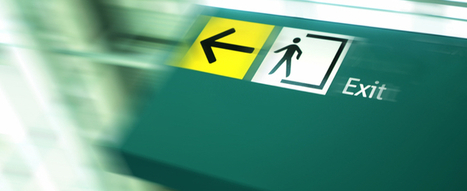



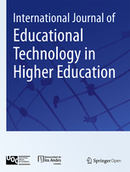
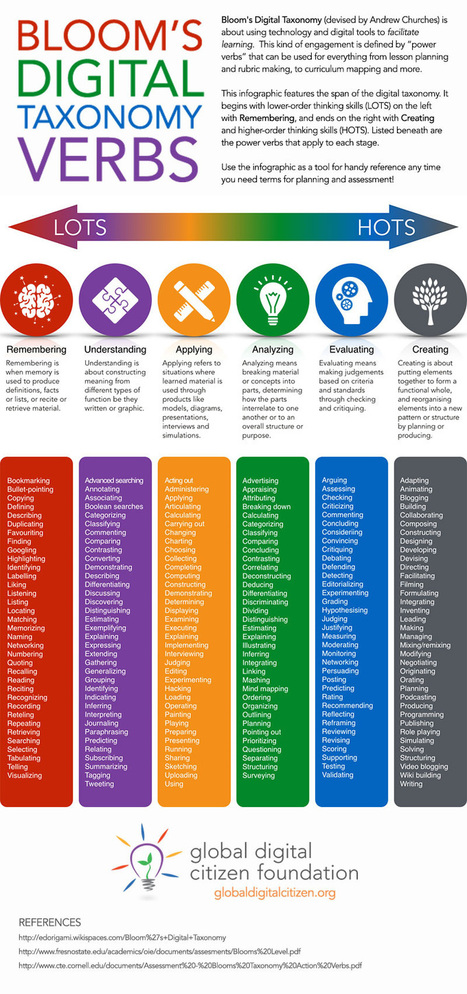


![[Infographic] Kirkpatrick's Levels of Evaluation | E-Learning-Inclusivo (Mashup) | Scoop.it](https://img.scoop.it/GJAw_EvVdicMO3zqYxWb2zl72eJkfbmt4t8yenImKBVvK0kTmF0xjctABnaLJIm9)



